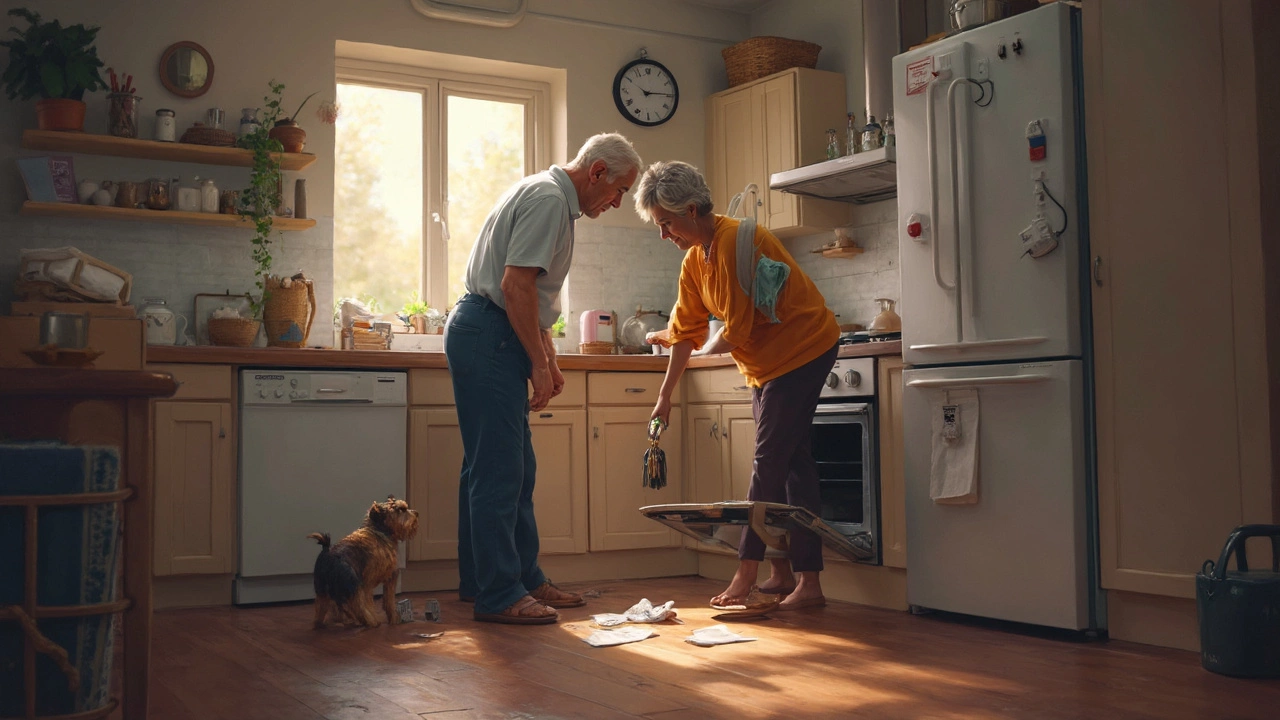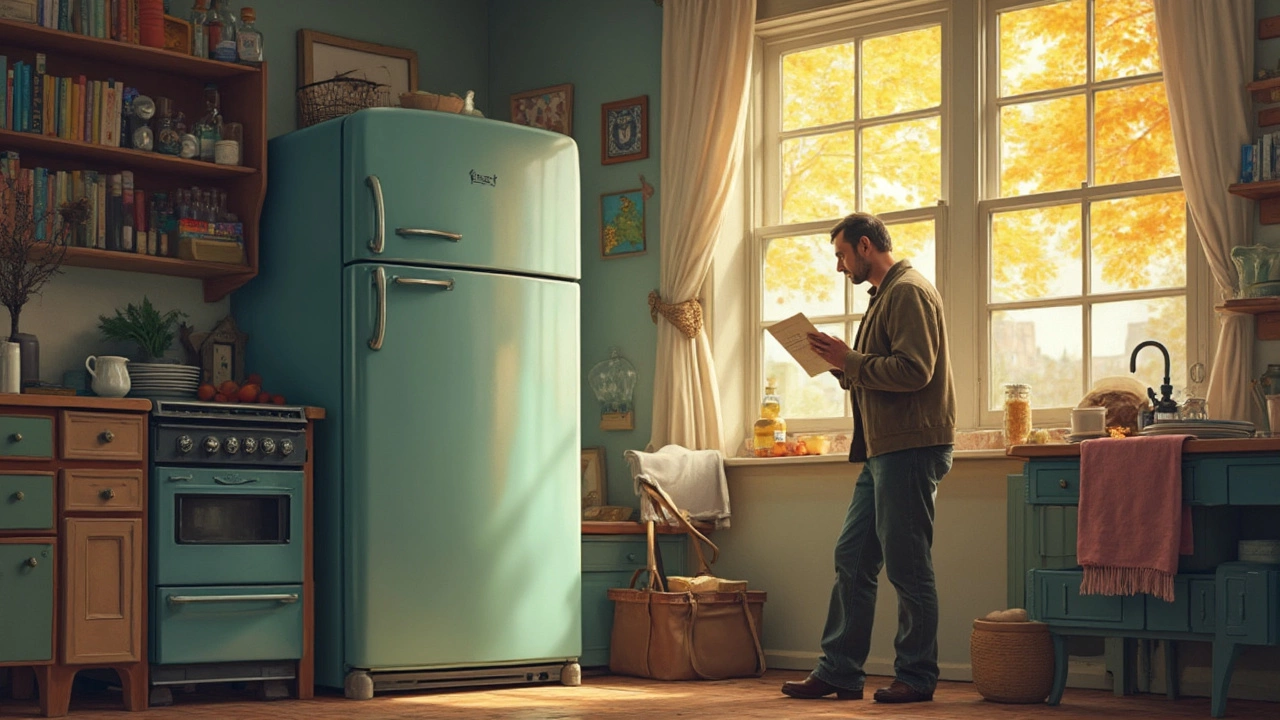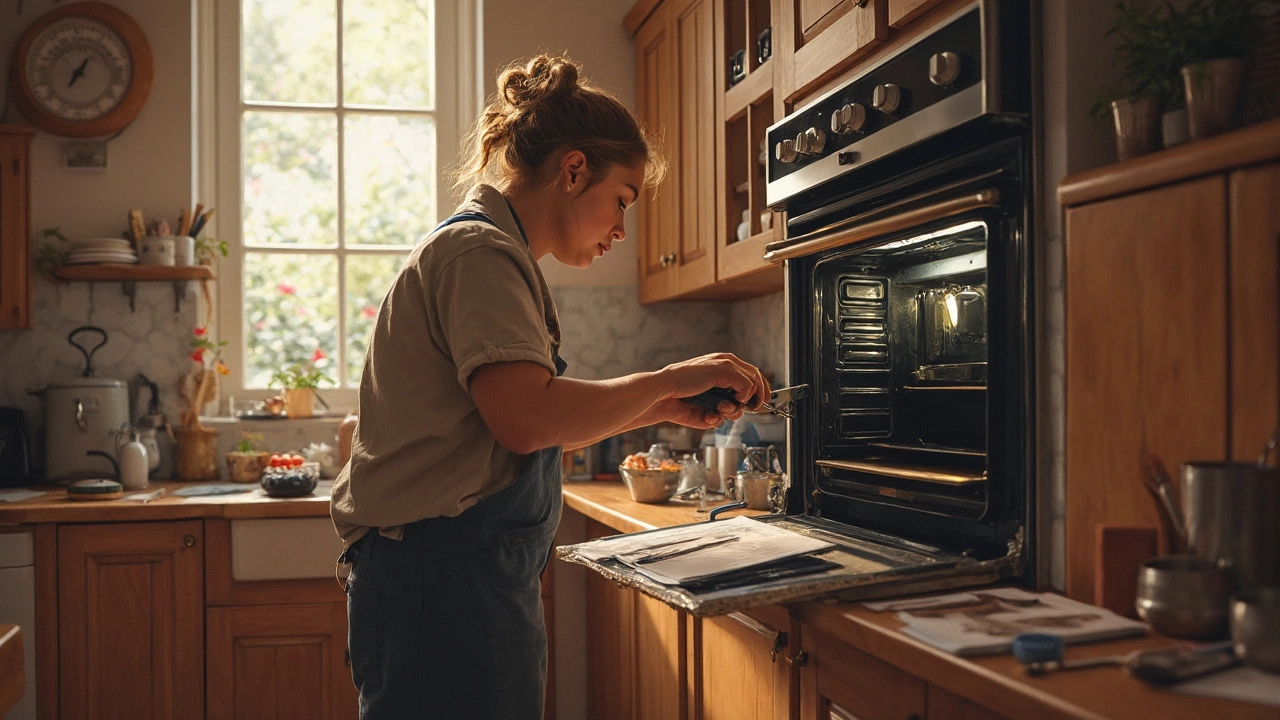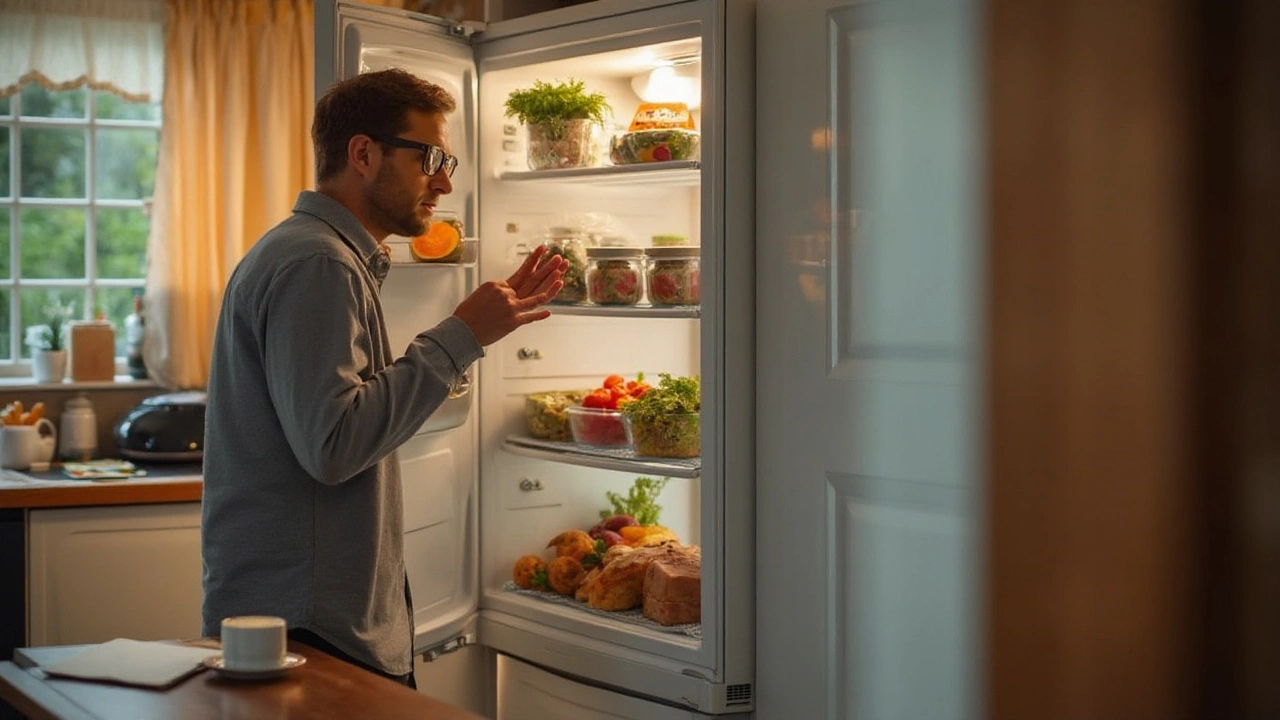
- 4 Nov 2024
- Gideon Thornton
- 0
Discovering that your freezer has stopped working can cause immediate panic, especially if it's packed with food. The good news is, with a bit of time and patience, you might be able to get things back on track without too much hassle. Before you rush to call a repair technician, take a deep breath and follow a few straightforward steps to diagnose and, potentially, fix the issue yourself.
In this article, we'll walk you through some key actions you should take right after your freezer stops working. From making sure your food stays safe to understanding the common causes behind a freezer breakdown, we've got you covered. We'll even give you a few pointers on minor repairs you can do on your own. And if the problem persists, we'll guide you on how to decide when it's time to call in the professionals.
- Initial Diagnosis
- Food Safety Measures
- Common Causes and Solutions
- DIY Repair Tips
- When to Call a Professional
Initial Diagnosis
When you first realize your freezer isn't doing its job, it's vital to keep your cool and start by checking the basics. Sometimes, the reason for a seemingly grim appliance failure is simpler than you'd think. Begin your freezer troubleshooting journey by ensuring that the unit is still plugged in. Although it may seem trivial, a loose plug or a tripped circuit breaker can be the culprit. Inspect the power outlet for any signs of damage, and try plugging in another device to confirm that the outlet is functional. While assessing the power, also check if any extension cords are being used, as these can sometimes cause issues due to voltage drops.
Next, listen closely to your appliance. Sometimes, subtle noises can give away what’s happening inside. Is there a hum or a buzzing sound? It's a good sign, indicating that the compressor is trying to work. However, complete silence or an unusual noise might suggest a malfunction. If the freezer is running but not cooling, a specific part might have failed, making it crucial to narrow down the cause. Look behind the unit to ensure the condenser coils are clear of dust and debris as clogged coils can badly affect performance. Cleaning them might just bring the chill back.
Additionally, consider the settings. Double-check the temperature setting to ensure it hasn't accidentally been adjusted or changed. A simple bump from a grocery item or cleaning can easily change the setting unknowingly. If the temperature dial has been altered, restoring it to the correct position could solve the problem. If your freezer sports any digital displays or error codes, refer to your user manual or the manufacturer’s website for explanations; these codes can be incredibly helpful in precise freezer maintenance or alert you to known issues quickly.
It’s also a good time to look at the internal light. If your freezer has one and it's not illuminating when you open the door, it might be another electrical indicator pointing to the root of your problems. While carrying out these checks, ensure you also minimize how often you open the door. Every time you open it, you reduce the internal temperature further, risking your food's safety.
In certain cases, the freezer's continued operation might mask an underlying fault. If your appliance keeps running despite the temperature not dropping, it may lead to inefficiency and wear-out faster than expected. Opening up the back panel and visually inspecting the fan for obstructions or damage can, at times, reveal simple issues that have significant effects. If you're mechanically inclined, and your warranty period is over, cautious dismantling under stringent care might reveal the pesky problems causing distress.
Food safety becomes a priority during any appliance breakdown. Make sure to keep your freezer door closed as much as possible. According to the U.S. Department of Agriculture, a fully stocked freezer will keep food safe for up to 48 hours if unopened. Clearing space near more temperature-sensitive items might help. But, remember—rapid diagnostics ensure quicker problem solutions, so the longer you delay troubleshooting, the higher the risk of food spoilage.
Food Safety Measures
When your freezer quits unexpectedly, your mind naturally leaps to the well-being of all that precious frozen food inside. The clock is ticking from the moment your freezer stops working, so quick, informed action is necessary to keep your food safe. Food safety is paramount to avoid any risk of contamination or spoilage, which can lead to foodborne illnesses. The USDA recommends keeping the freezer door closed as the first golden rule. A full freezer can hold its temperature for about 48 hours if unopened, while a half-full freezer does so for about 24 hours. This buffer provides some breathing room to decide what to do next.
Start by checking the ice crystals on your frozen food items. Light crystal formation can mean your food is still safe. Solid ice is a good sign, indicating that your food remains frozen. However, if the food is thawing and feels warmer than 40 degrees Fahrenheit, you'll want to either cook it or discard it. According to the CDC, foods like meat, poultry, dairy, and seafood pose higher risks when they've exceeded safe temperatures. You might not think about it, but when in doubt, it's better to err on the safe side.
Ice Blocks are your allies during such emergencies. You can bolster your freezer's chilly environment by adding bags of ice or frozen ice packs if you have them on hand. This helps maintain a low temperature and can add precious hours to your window of preservation. For added peace of mind, a thermometer placed in the freezer can help monitor your food's safety, without opening the door unnecessarily. Keep reading the gauge without trying to rely on guesswork. It’s just a little extra attention to detail that can make a big difference.
Organizing Food effectively is another smart step. Move items around in a compact way to ensure the cold air flows evenly. Bearing in mind the 'first in, first out' rule can be helpful — prioritize consuming the oldest items first, reducing waste in the long run. If you find yourself having to move food out of the freezer, having a cooler with ice packs can be invaluable. A good cooler can preserve these food items temporarily and potentially saving you from rushing through cooking a dozen meals at once.
If your freezer problem seems immediately unfixable, and it looks like a long-term issue, consider your friends or neighbors who might be able to provide temporary freezer space. Sometimes, just relocating the most perishable items can save them from spoilage. It might sound unconventional, but it’s worth a shot if it means less food waste. Have a discussion with those around you; many people are sympathetic and willing to help.
A lesser-known tip is rotating your power. If your freezer's breakdown is due to a power issue, occasionally, switching the power off and back on again might solve the problem. While this sounds simple, making absolutely sure that the issue isn't electrical can sometimes restore normalcy fast enough to preserve much of your food inventory. So always check your power sources before giving up on the entire freezer unit.
"It’s not about how much food you store; it’s about storing it the right way to ensure it’s safe," advises food safety expert Dr. Ray Martin.
In the event that you can't save your frozen food, consider this a learning opportunity. Start thinking about future emergency scenarios. Having a well-stocked emergency kit, including a thermometer, ice packs, and a planned list of items to save, can be your best defense next time. By maintaining a careful approach to how you manage your freezer when it quits and applying these food safety measures, you can rest easier knowing you're doing what's right for you and your family.
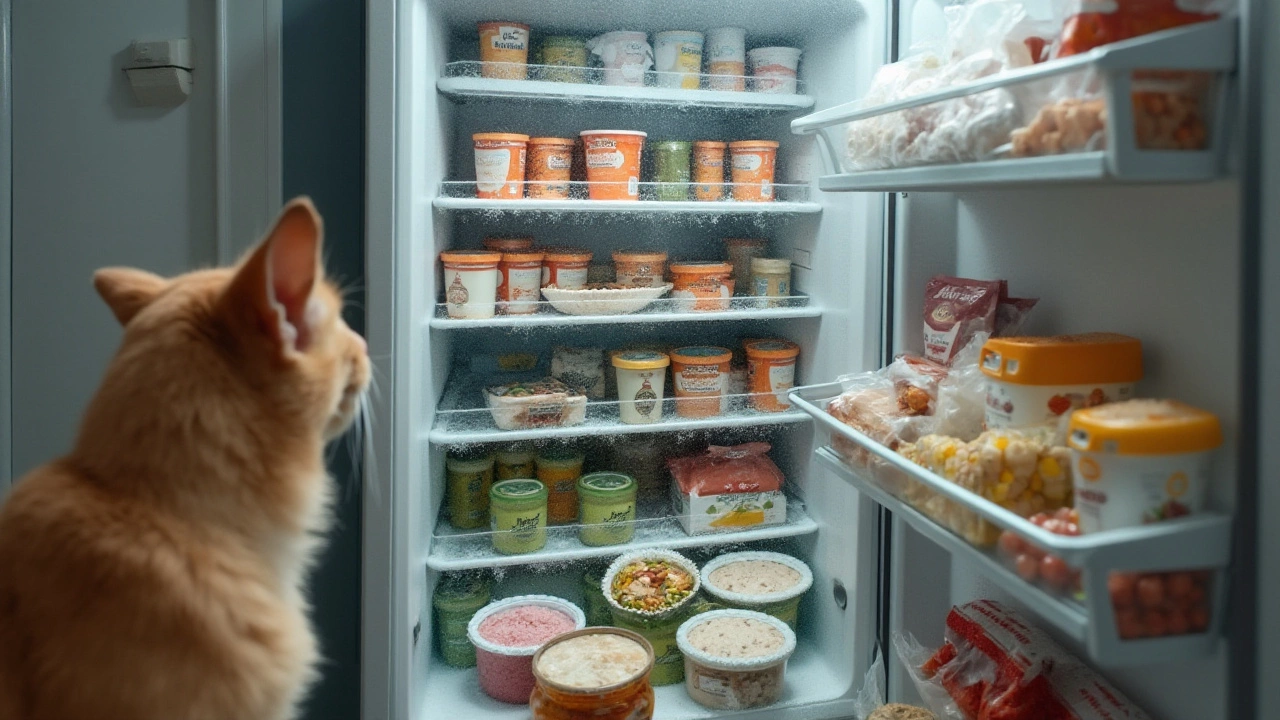
Common Causes and Solutions
The sudden halt of your freezer can often be attributed to a few typical culprits. One of the primary causes is power supply issues. Freezers can easily trip a breaker or have a plug come loose, entirely unnoticed, especially in cramped spaces where you might not see the outlet regularly. It's a good idea to always start with checking if the appliance is plugged in properly or if any breakers have tripped. If the power source checks out, the issue might lie in the internal components, necessitating a deeper dive.
An overlooked reason could be dirty condenser coils. Dust and dirt accumulating on these coils can prevent the freezer from cooling efficiently, leading to unexpected shutdowns. Regular cleaning with a vacuum or a coil brush can significantly improve performance. Also, keep an eye on the evaporator fan, as any blocked or malfunctioning fan can cause cooling issues.
Temperature settings play a crucial role in a functioning freezer. Most often, incorrect settings can interfere with your appliance’s ability to cool properly. It's worth double-checking the dial settings inside the freezer. Set it to the manufacturer's recommendation and monitor the changes. If adjustments don't help, there could be a thermostat failure, requiring a replacement of the interior temperature sensor. This is not an uncommon fault, but it can be a bit tricky to address without professional help.
Door Seal Problems
Another sneaky source of trouble is the door seal or gasket. If it is damaged or dirty, cold air can leak out, causing the freezer to overwork itself with little benefit. Check to ensure that the seal is clean and make sure to replace it if it appears cracked or worn. A nice tip is to use the paper test. Simply close a piece of paper in the door and try to pull it out. If you can easily remove the paper, it might be time to replace the gasket.
"Keeping the appliance clean and ensuring proper ventilation can extend the lifespan of your freezer significantly," advises Alan Franks, a leading expert in home appliance maintenance.
Even the best appliances need attention now and then. If you've tried these steps and your freezer still isn't running, it might be an indication of more serious mechanical failures, such as compressor or refrigerant issues. Addressing these problems usually requires professional expertise and specialized tools.
Understanding these common issues and their solutions can save you both time and money. Regular maintenance and being aware of the potential problems that your freezer might encounter can help you avoid a big headache in the future. Sometimes, simple actions like cleaning dust off the coils, ensuring a tight seal, or resetting the temperature settings can breathe new life into a seemingly defunct appliance.
DIY Repair Tips
Tackling a freezer repair on your own can feel daunting, but it is often entirely manageable with a bit of guidance and determination. First and foremost, safety is paramount. Before you pop the freezer open, make absolutely sure it's unplugged. You don't want to risk a nasty shock. Now, let's dive into the most common issues you might face and how to troubleshoot them.
A common culprit for freezer malfunctions is inadequate freezer maintenance, particularly when air cannot circulate properly due to ice build-up or a dirty condenser coil. To address this, locate your freezer's condenser coil, typically situated at the back. Carefully clean it with a vacuum attachment or a handheld brush to remove any dust or debris. A clean coil helps maintain the appliance's efficiency and prevents overheating, potentially averting major issues down the line.
Another frequent issue is the faulty door seal which could be the cause of warm, humid air coming into contact with the cold inside, forming frost. This not only burdens your freezer's motor but also impacts its function. Conduct the dollar-bill test by placing a bill between the freezer and the door, closing it. If you can easily pull the bill out when the door is closed, it's time to replace the gasket. While working on the seal, ensure that your freezer is on an even surface; an uneven stance might distort the body, making the seal ineffective.
Strange noises or a complete silence could indicate a problem with the evaporator fan motor. If you suspect this, peel back the freezer panel and check for obstructions. Spinning the blades can sometimes help reset the motor. If everything is clear but the noise persists, the motor might need replacing. On average, fan motors should whisk along smoothly; friction and resistance often hint at issues. Ensure you have the necessary tools before starting this task, as it involves more intricate work, like connecting wires correctly.
In some cases, a freezer might not cool properly due to thermostat problems. Testing your freezer's thermostat requires a multimeter. First, remove the thermostat from the circuit and test it at different temperature settings. You should see a change in continuity on the multimeter. If consistent continuity does not occur, the thermostat might be faulty and require replacement.
"A working thermostat is pivotal since it governs the cooling cycle,” says appliance repair expert, John Muller.
If the root of the issue still eludes you, it may be time to consult a detailed service manual for your specific freezer model. Manuals often contain exploded diagrams that could illuminate obscure internal problems. Within the pages, you might find hidden gems of advice direct from the manufacturer. Just remember, patience paired with a bit of curiosity often lends itself to effective problem solving. By tackling these tasks, you're not only addressing an immediate concern but honing the lifetime of this essential appliance in your home.
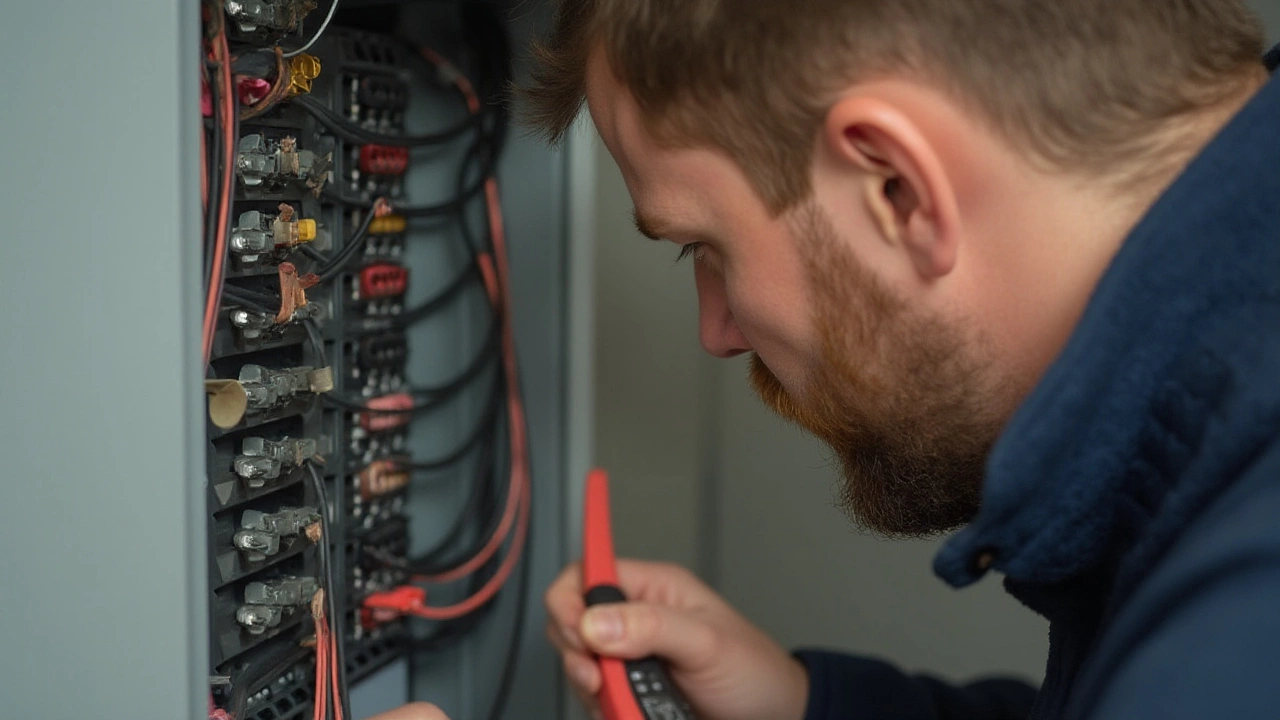
When to Call a Professional
There comes a point in every appliance owner's life when the problem at hand might be too complex to solve without expert intervention. It's crucial to recognize these moments to avoid causing further damage or safety hazards. If your attempts at diagnosing or performing minor repairs on your freezer have not resulted in any improvement, it’s a clear sign that calling a professional could save both time and money in the long run. Another indicator that professional help is needed is if you hear unusual noises, such as loud banging or grinding, which might indicate a more serious mechanical issue within the compressor or motor assembly. Attempting to fix these aspects without the proper expertise can lead to significant injury or even void your warranty.
One essential factor to consider is the age of your appliance. A freezer that’s been in service for a decade or more might regularly face issues simply due to wear and tear, and a professional can advise you on whether repair or replacement is more cost-effective. Keeping safety in mind, be alert to any burning smells or signs of electrical malfunction, which can pose fire hazards. Professionals have the specialized tools and materials to address these hazards safely, ensuring not just functionality but protecting your home as well.
There are situations where the expertise of a skilled technician can diagnose and resolve issues that might not be apparent to someone lacking formal training in appliance repair. A certified technician can assess whether the issue stems from complex electrical problems or faulty internal components that require specialized tools for replacement. As noted in a report from the Home Appliance Manufacturers, "The average repair for crucial appliances now requires more than just basic household tools; professional diagnostics often rely on advanced instruments to ensure precision."
Don't forget that many certified repair services offer warranties on their work, providing extra peace of mind that any further issues will be managed promptly. If you're unsure about identifying reputable services, online reviews and consumer reports are excellent resources to gauge the quality of customer service and technical competence you can expect. Most importantly, don’t underestimate the reassurance that comes from knowing a seasoned expert is handling your appliance, which often encourages more thorough solutions than a DIY attempt might achieve. Weigh these considerations carefully and, when uncertain, it may be time to take that leap and call in the pros.
Ultimately, an expert's insight could be the difference between a fully functioning freezer and one that continues to be a source of frustration and inconvenience. By understanding when to hire a professional, you not only extend the life of your appliance but also preserve your peace of mind.


